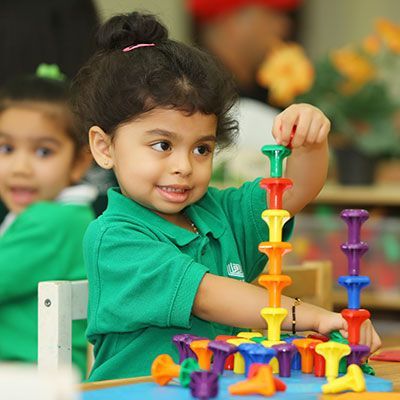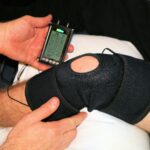Every parent hopes for their child a great future. Every one of us wants them to be confident, inquisitive, and prepared to face the world. Early childhood education usually lays the groundwork for this trip. Little minds are formed, curiosity is sparked, and vital skills are developed during these forming years. Understanding the value of preschool can make all the difference in raising a child’s potential for Western Sydney families looking for high-quality childcare choices. Let’s find out why early education is important and how you might equip your children for better futures.
The Importance of Early Childhood Education
Early childhood education is where lifelong learning begins. During those vital early years, it shapes a child’s emotional and cognitive development.
Preschool quality learning opportunities have been found to promote brain development. Participating in interesting events helps peers to be creative, solve problems, and engage in socializing.
Children develop their first academic routines in these formative years. Good experiences foster a passion of learning, so enhancing the fun of next educational endeavors.
Early exposure to ordered surroundings also helps to develop vital life skills including communication and teamwork. Through group play, children develop their ability to communicate themselves and interpret others.
Not only is early childhood education good for you; it’s also essential for producing confident students who will flourish going forward. The right beginning creates countless opportunities!
Looking for quality early education? A trusted childcare centre western sydney residents rely on offers a nurturing environment, experienced educators, and engaging learning programs to support children’s growth, development, and school readiness from an early age.
Benefits of Quality Early Childhood Education
Good early childhood education lays a strong basis for lifetime learning. Youngsters participate in play-based activities meant to inspire creativity and inquiry. Their learning to investigate their surroundings develops their critical thinking abilities.
Social events in a daycare centre help to develop vital communication skills. Children grow to be friends and pick up team-building skills. Their emotional intelligence is formed by this cooperative attitude.
Children also learn limits and expectations from organized activities. Over time, these events improve their independence and self-control.
Moreover, early life exposure to many points of view enhances cultural awareness. Youngsters develop empathy for others and respect of differences.
Funding high-quality preschool initiatives prepares one for later on academic success. Early learners, who have confidence and resilience, are more likely to shine in main school environments.
How to Choose the Right Preschool for Your Child
Choosing a preschool for your child is among the most crucial decisions you make for them. First, give their personality and needs some thought. While some kids need more freedom to explore, others find great success in regimented surroundings.
Visit possible preschools to get their vibe. See how teachers treat their charges. Early learning can be much enhanced by a loving approach.
Think about the presented curriculum. Does it fit your values for education? Search for initiatives stressing play-based learning in concert with academics.
Location is also important; choosing a Western Sydney childcare facility that fits daily logistics will simplify daily tasks.
Remember also facilities and safety criteria. Make sure they satisfy health rules and offer a safe environment for small children to develop and learn in.
As you reduce your choices, rely on your gut feeling; sometimes, the best fit feels just right from the beginning.
Understanding Different Teaching Methods
Regarding early childhood education, knowing several teaching strategies can transform the results. Every method has a different philosophy and set of strategies to meet the several needs of new students.
Montessori stresses self-directed activity so that kids may pursue their interests at their own speed. This approach develops critical thinking ability and independence.
Using a whole approach, Waldorf education combines academics with arts in a loving setting. It values imagination and creativity, so supporting emotional development in line with intellectual development.
Reggio Emilia emphasizes working among parents, teachers, and children. Projects driven by children’s curiosity help to foster experiential learning.
Play-based learning uses play to inspire inquiry. Social skills depend on it, and it’s a great approach for youngsters to naturally absorb fresh ideas.
Selecting a Western Sydney childcare facility that fits your child’s requirements will make all the difference in their educational path.
Creating a Supportive Learning Environment
Development of young children depends on a supportive learning environment. It encourages confidence, curiosity, and creativity as well as prepares them for their path of education.
A Western Sydney childcare facility should be a friendly place bursting with encouragement. All the difference can come from vivid colors, interesting materials, and lots of play possibilities. Youngsters grow best when they feel valued and safe.
Furthermore, important in this environment are parents. Preschool experience of a child improves when open communication between caregivers and families exists. Providing information on your child’s interests or difficulties enables teachers to better target their approach.
Including family values in the course will help to deepen relationships as well. Children’s self-esteem increases and inclusiveness is promoted when they see their cultures reflected in classroom projects.
Routines also give youngsters the structure they yearn for. Predictability every day lets them explore freely knowing limits. Many times, effective learning follows these rules.
As equally crucial in developing social skills required for future success is peer-based encouragement of cooperation. Group projects help to develop conflict resolution, empathy, and teamwork—all very important skills for entering primary school environments.
Parents create strong foundations for lifetime learning experiences that go much beyond early childhood education spheres by selecting surroundings full of support—be it through resources or relationships.












